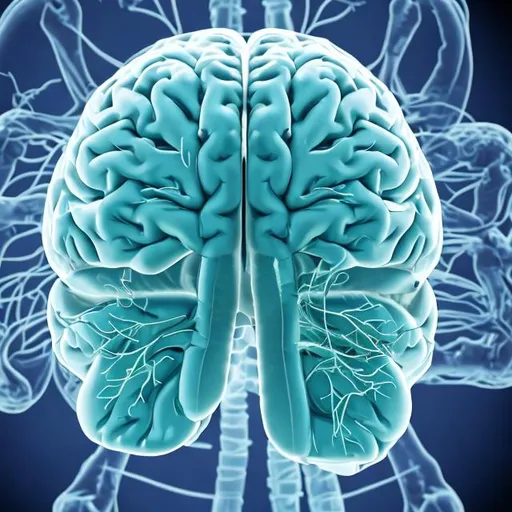How often have you made an important decision by going along with your “gut feeling”? Do you remember the last time you felt a gut-wrenching sensation in the pit of your stomach in moments of anger, anxiety or emotional hurt? Contemporary medical research studies indicate that this is no accident. In fact, it is your “second brain” speaking to you.
Know your second brain
Simply put, “second brain” is a reference to the complex network of nerves that constitute your Enteric Nervous System (ENS). They take care of the functioning of your gastro-intestinal system. Phrases such as ‘brain-gut axis’ and ‘gut-brain connection’ also refer to this phenomenon.
Dr. Emeran Meyer is a renowned gastroenterologist and neuroscientist and is the executive director of the UCLA G. Oppenheimer Centre for Neurobiology of Stress and Resilience (CNSR). In his landmark book “The Mind-Gut Connection”, Dr. Meyer elaborates upon how the hidden brain-gut conversation within our bodies impact our mood, choices, and overall health and well-being. He proposes unequivocally that the mind-body connection is real and that we are today just beginning to realise the implications of the communication between the brain, the gut, and the trillions of microorganisms living in the gut, on the health of the body and its regulatory systems.
The Gut-Brain axis
With the rapid onset of urbanisation and changing food and lifestyle habits, gut health and mental health challenges have increased in the past few years. “22% of Indian adults suffer from constipation”, cites Abbott’s Gut Health Survey (2018). One of the major findings of the National Mental Health Survey conducted by the National Institute of Mental Health and Neurosciences (NIMHANS) is that mental disorders are closely linked to both causation and consequences of several non-communicable disorders (NCD). All these findings underline the importance of looking at health in a more holistic manner.

In my practice as a coach and yoga therapist, I have worked with many clients who have experienced gut health issues, which have led to mental health issues such as depression and anxiety. I have found that working with the awareness that body and mind are part of a spectrum, and addressing the condition holistically through practices that influence the physical, physiological, and mental health of the person, becomes very important in the healing process.

“I had anxiety as a child. This in turn caused constipation and general abdominal pain, which led among other issues to a lack of appetite and fatigue. I realised that stress had a very big connection with how our gut functions. My gut was responding directly to the level of stress I was experiencing,” says Prerna Ramanathan, an internationally certified yoga therapist based in Bengaluru. In fact, this realisation inspired Ramanathan to start a gut health programme for her clients.
Pic: Prerna Ramanathan, Yoga Therapist, Bangalore.
“Your gut and brain have a bi-directional relationship. If your gut is taken care, of, your brain functions well. If your brain is healthy, you will eat well,” explains Sandhya Manian, a nutritionist based in Chennai. “For example, if your sleep is disturbed one night, the hunger hormones goes haywire, and it is likely that your food choices become mindless the next day. If you go with your body’s natural rhythm, practices like portion control happen naturally. People struggle with portion control because they fight against their nature,” she adds.
Pic: Sandhya Manian, Nutritionist, Chennai.

Be aware, be safe
One of the goals of yoga as per Patanjali’s Yoga Sutras is ‘heyam dukham anāgatam’, which means, one can stop the sorrow that may be caused in the future by anticipating it and dealing with its seeds in the present. When it comes to gut health, like most other illnesses, prevention begins with awareness. However, many who suffer gut health issues are often not aware of the seriousness of their condition.
“I had a client who discovered that he had Irritable Bowel Syndrome (IBS) only after suffering with constipation for over 15 years. Through these years, he thought it was normal to not have bowel movement until later in the day. It was only when he underwent a colonoscopy for some other health issue that he discovered he’d had problems in his gut,” says Ramanathan.
Originally written by Hariprasad Varma for Live Mint Lounge published on 30 Aug 2023.



